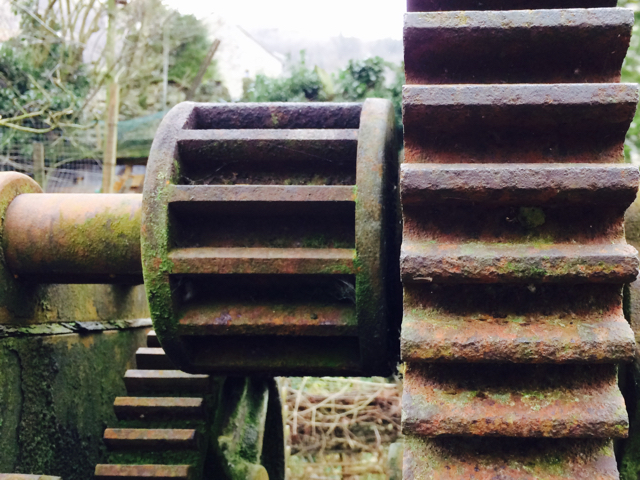Today I thought I’d share some of my motivations for the Analogue Skills project.
1 – An engineer’s fascination
I am not anti-technology. I’m an engineer. I’m fascinated by how systems, machines and technology work, and how people use them. I am also fascinated by how technology changes the user and the user’s perception of the world.
2 – Tech awkward
I’m also a bit awkward when it comes to tech. Sometimes I’m an early adopter – I got an iPhone before all my friends. Sometimes I’m an early rejector – I think I’m the only person I know who doesn’t have Google Maps on their mobile. Sometimes I’m a never adopter – for example, I don’t have an Amazon account.
The awkward bit is that I do have a smart phone (or phone, as they are now called), but I don’t assume I should use it for everything. Phone or no phone is a false dichotomy. I just don’t want my experience of life to mediated through a screen and potentially manipulated to meet corporate ends.
3 – Managing distractions
A third factor is that I’ve spent ten years managing, successfully I think, to keep distractions from technology to a minimum. Distraction management means that I have hardly any apps on my phone; and it has tuned me in to noticing how much time I see people around me using their devices.
4 – Digital and Analogue Exclusion
My aim to minimise tech distractions has made me increasingly aware of how much work is now involved in maintaining good ‘tech hygiene’. It is far easier to accept all updates, terms and conditions, offers to be kept-up-to-date, options to back up everything to the cloud, than it is to question what is and isn’t needed. Taking control of all your tech takes an increasing amount of specialist knowledge, and so more and more people are becoming excluded from the possibility of being less digitally-dependent.
On the flip side, I’m also very aware that while I experiment with experiencing a less digitally-dependent lifestyle, there are people for whom this is no experiment – a lack of access to digital connectivity, whatever the reason, is a very real barrier to participation in all sorts of aspects of society (look no further than inequality of access to online teaching tools during lockdown homeschooling).
5 – In-real-life human connection
Two motivations come from the clowning training I’ve attended. The first is in-real-life human connection. In physical theatre, the clown thrives on a connection with people. Clowning training often works on discovering connection. It is an invitation to become curious about people, about seeing them as human beings with hopes and fears, with things that they are happy about, and things that make them sad.
It makes me want to seek out encounters with other human beings rather than computers. It tunes me in to when an opportunity for connection is taken away.
6 – Having everything you need
The second motivation from clowning training is about how you encounter the unexpected. In physical theatre, the clown is expected to come on to the stage with nothing, and work with what they encounter through interaction with the audience. It is working with vulnerability – emotions, uncertainty and risk of failure – to create something rich and powerful.
The training shows you that, yes you might have fears, but you also have everything you need.
In the digitally interconnected age, I think that tools that are positively offered to provide convenience, are actually making us less willing to encounter uncertainty. But this more controlled existence may be dull in comparison to what may happen if we encounter the unknown.
We too have everything we need, to encounter the world, to take risks and create powerful experiences for ourselves by confronting uncertainty. These are skills built into the human operating system – we just need to remember how to use them.
What is the Analogue Skills project?
The Analogue Skills Project is my attempt to gather together and keep safe less digital ways of doing things in case we need them again. My aim is to discover/redicover ways of being, feeling and acting that might serve us better.
Read more about the project here and check out my latest posts:


Leave a Reply